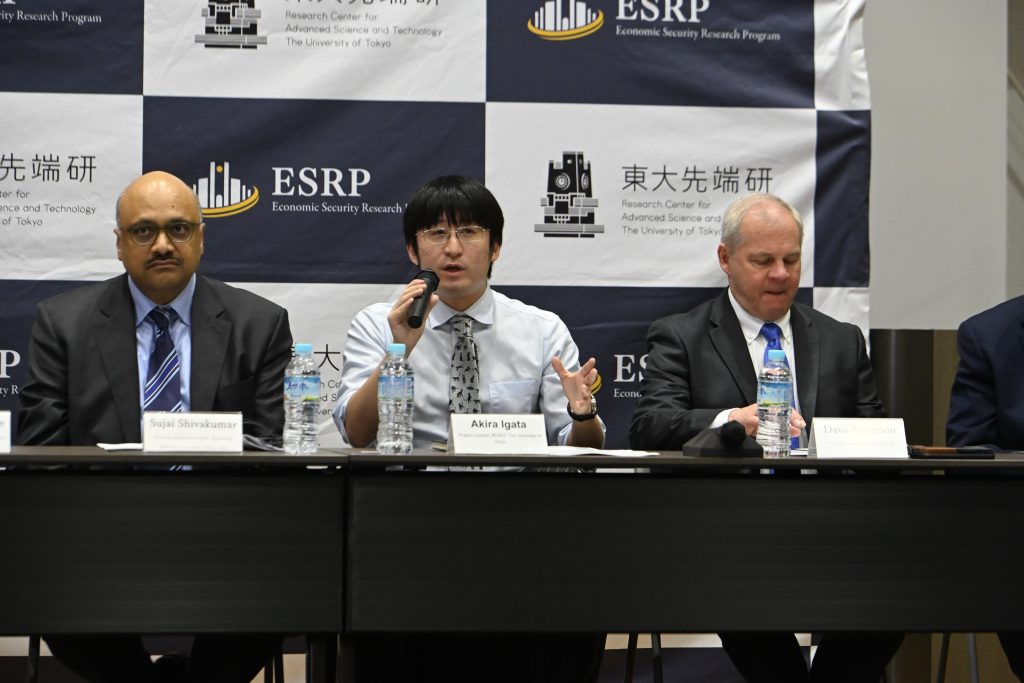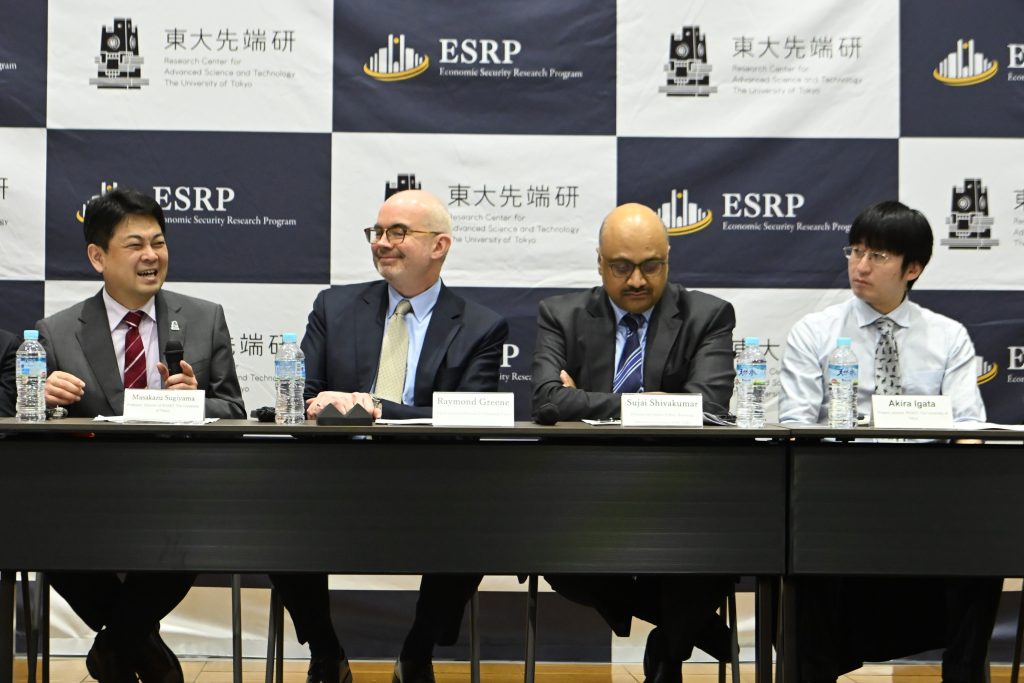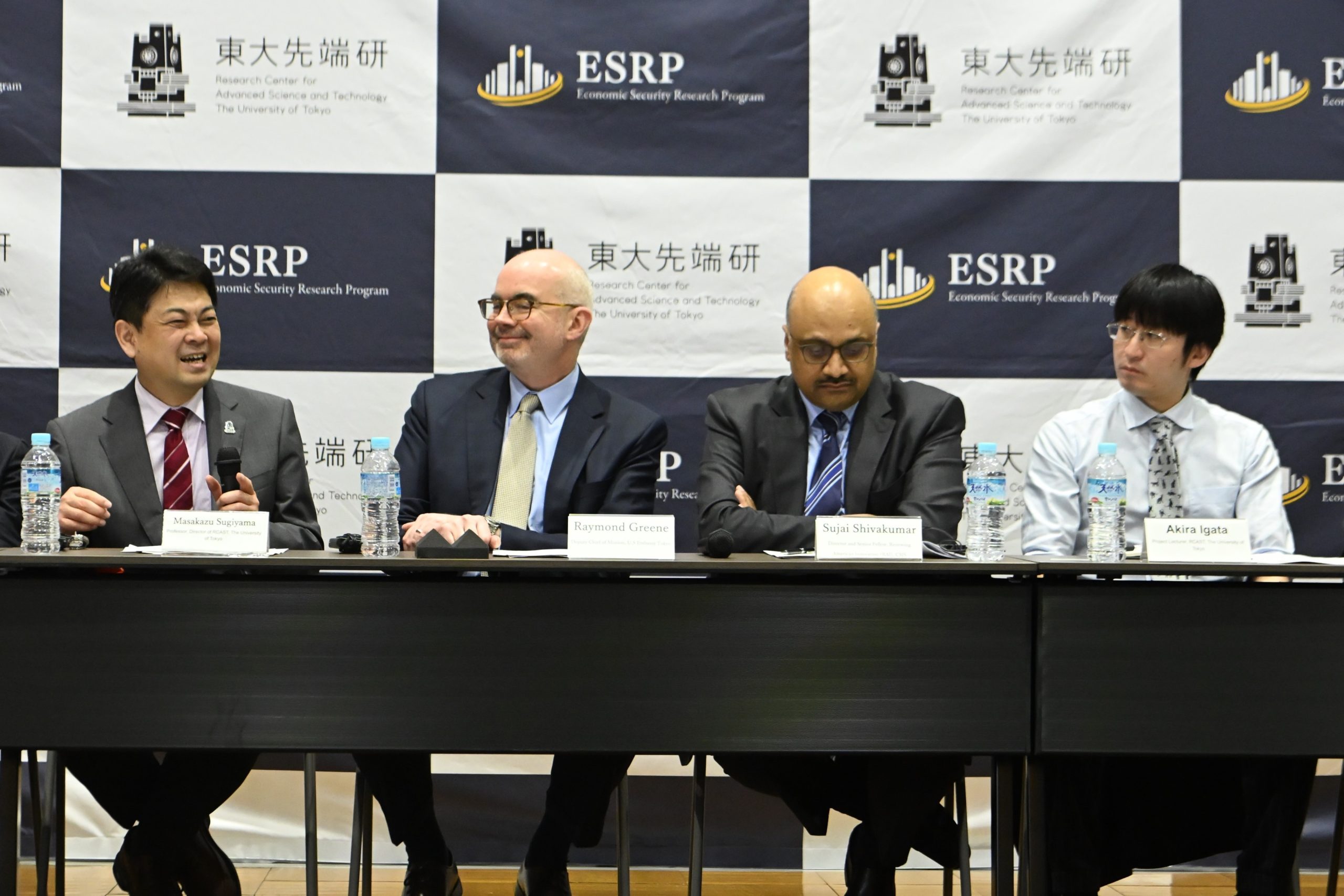On 29.03.2024, the ESRP and the CSIS co-hosted the Event “U.S.-Japan Semiconductor Symposium: U.S.-Japan Cooperation in Semiconductor Research and Ecosystem Building”.
Regarding the relationship between economic security and the private sector, it was pointed out that the Covid-19 pandemic has made clear the dangers of relying on foreign countries for semiconductor manufacturing. It was also agreed that not only government investment under the CHIPS and Science Act, but also investment by the private sector in manufacturers and investment by universities and other institutions in human resource development are important. It was pointed out that human resource development is important as the number of factories is expected to be increased due to capital investment and attraction of new factories. In fact, a case study shows attention to the semiconductor industry from students is being revived in Japan in response to geopolitical changes.

Regarding Japan-U.S. cooperation, it was mentioned that there is a need to establish a cooperative system similar to the cooperation among U.S. government departments and agencies that has been realized through the CHIPS and Science Act, and to realize such cooperation among like-minded countries. They also agreed that in terms of human resource development and technology, it is important to cooperate not only at the government level but also at the private sector level. On the other hand, in terms of investment in technology, it was pointed out that the cost of crossing the “valley of death” is unclear.

On the other hand, in terms of defense of technology, several issues were pointed out. At the government level, cooperation between Japan and the U.S. to protect key technologies through export controls and other measures is progressing, but the technology is developing too quickly and policies to protect it are being left behind. At the private sector level, there was mention of cybersecurity threats, specifically the issue that each company must provide cybersecurity to maintain business activities and protect information.

It was pointed out that the impact of AI on the semiconductor industry is manifested in cross-sectoral ways. The prospect was presented that the impact will further increase the demand for advanced semiconductors, thus ensuring that the semiconductors manufactured will be used.
It is also argued that it is necessary to prevent employees from leaking information to countries of concern, to properly manage intellectual property and cybersecurity, and that once trust is broken, it is difficult to rebuild. He gave some examples of actual cases where employees with security clearances were hired overseas.


